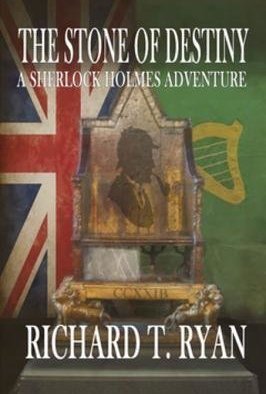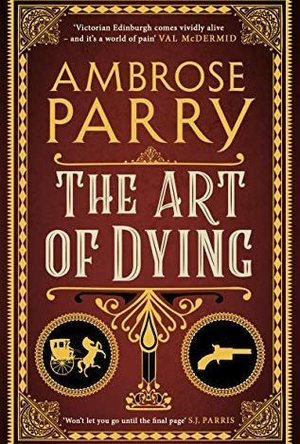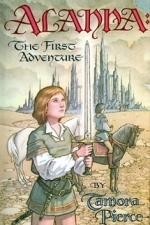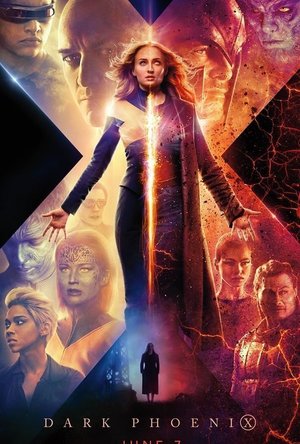Search
Sophia (Bookwyrming Thoughts) (530 KP) rated Knight Assassin in Books
Jan 23, 2020
Am I alone to say that this sort of felt like history + Downton Abbey + a little Arabian mythology? Perhaps it's the royal technicalities that make me think of Downton Abbey with its lords and ladies, despite the fact the book seems to be set around the Crusades and everyone seemed to be fighting over the Holy Land.
I was actually a bit reluctant to accept Knight Assassin for review for a few reasons:
1. It didn't sound very appealing A girl's mother gets murdered and she wants revenge. Then she meets a guy from her past who actually ends up being her enemy. Nope... not really for me, though the last part is semi-intriguing.
2. I don't know that much about the Knights Templar. I don't even remember that one book I read and it was nominated for a state award once.
3. I had a pretty big review pile already
However, as I got started, I realized I was underestimating, and I actually enjoyed it in most cases. But what really started to get the ball rolling?
Zayn's mother gets accused of witchcraft and burned to death.
I know it sounds really mean and really odd of me that it would catch my attention. But think about it. If that happened to me (or any of us really), I would be looking for revenge as well after I get over my initial shock, which could last for who knows how long.
Zayn gah, I keep putting an e at the end. One Direction, this is not the time to slip into a review is probably by far one of the strongest heroines I've read about. She goes through so many trials throughout the book from her mother's murder to rape to finding out what she really is and hasn't broken down for most of the book. Definitely shorter than me, but Zayn seems to be pretty impulsive for a good half of the book.
For the first half, there's a lot of flashbacks throughout the beginning to Zayn's childhood, in which I sort of found pointless. I'm not exactly sure what the connection really is, aside from how she meets Guy de Molay and Earic Goodwin. It's not until the second half where the interesting stuff happens and there's not as many flashbacks, but the first half by all means isn't boring at all. I find that Zayn has a lot of backstory, which frankly makes her less of a pancake (flat characters).
The ending though, felt like a stand alone, but it didn't feel like a stand alone. I'm surprised this isn't a series to be honest. However, if you're the type who enjoys reading a bit of history and a little mythology, perhaps you should consider Knight Assassin. It's a nice change from other genres (particularly aliens and angels at the moment) as there aren't many books set in the late 1100s.
<b>Random Thought:</b>
<blockquote>I will never recover my male ego, so long as Zayn is around to humble me.</blockquote>
Perhaps where there's a Carter, Jace, Daemon or a Herondale, there needs to be a Zayn. She might be able to keep their ego in check... well, particularly the third one. ;)
--------------------
Original Rating: 4.5 out of 5 Owls
Advance review copy provided by publisher for review
This review and more can be found at <a href="http://bookwyrming-thoughts.blogspot.com/2014/03/arc-review-knight-assassin-by-rima-jean.html">Bookwyrming Thoughts</a>
<a href="http://bookwyrming-thoughts.blogspot.com/"><img src="http://4.bp.blogspot.com/-Gi5Rk5yLloA/UtliaUbdL3I/AAAAAAAACbE/J27z92_qrYU/s1600/Official+Banner.png"; /></a>
I was actually a bit reluctant to accept Knight Assassin for review for a few reasons:
1. It didn't sound very appealing A girl's mother gets murdered and she wants revenge. Then she meets a guy from her past who actually ends up being her enemy. Nope... not really for me, though the last part is semi-intriguing.
2. I don't know that much about the Knights Templar. I don't even remember that one book I read and it was nominated for a state award once.
3. I had a pretty big review pile already
However, as I got started, I realized I was underestimating, and I actually enjoyed it in most cases. But what really started to get the ball rolling?
Zayn's mother gets accused of witchcraft and burned to death.
I know it sounds really mean and really odd of me that it would catch my attention. But think about it. If that happened to me (or any of us really), I would be looking for revenge as well after I get over my initial shock, which could last for who knows how long.
Zayn gah, I keep putting an e at the end. One Direction, this is not the time to slip into a review is probably by far one of the strongest heroines I've read about. She goes through so many trials throughout the book from her mother's murder to rape to finding out what she really is and hasn't broken down for most of the book. Definitely shorter than me, but Zayn seems to be pretty impulsive for a good half of the book.
For the first half, there's a lot of flashbacks throughout the beginning to Zayn's childhood, in which I sort of found pointless. I'm not exactly sure what the connection really is, aside from how she meets Guy de Molay and Earic Goodwin. It's not until the second half where the interesting stuff happens and there's not as many flashbacks, but the first half by all means isn't boring at all. I find that Zayn has a lot of backstory, which frankly makes her less of a pancake (flat characters).
The ending though, felt like a stand alone, but it didn't feel like a stand alone. I'm surprised this isn't a series to be honest. However, if you're the type who enjoys reading a bit of history and a little mythology, perhaps you should consider Knight Assassin. It's a nice change from other genres (particularly aliens and angels at the moment) as there aren't many books set in the late 1100s.
<b>Random Thought:</b>
<blockquote>I will never recover my male ego, so long as Zayn is around to humble me.</blockquote>
Perhaps where there's a Carter, Jace, Daemon or a Herondale, there needs to be a Zayn. She might be able to keep their ego in check... well, particularly the third one. ;)
--------------------
Original Rating: 4.5 out of 5 Owls
Advance review copy provided by publisher for review
This review and more can be found at <a href="http://bookwyrming-thoughts.blogspot.com/2014/03/arc-review-knight-assassin-by-rima-jean.html">Bookwyrming Thoughts</a>
<a href="http://bookwyrming-thoughts.blogspot.com/"><img src="http://4.bp.blogspot.com/-Gi5Rk5yLloA/UtliaUbdL3I/AAAAAAAACbE/J27z92_qrYU/s1600/Official+Banner.png"; /></a>
Ivana A. | Diary of Difference (1171 KP) rated The Stone of Destiny: A Sherlock Holmes Adventure in Books
Jul 30, 2018
Fans of Sherlock Holmes, fans of mystery, fans of adventure and suspense - this might be your next favorite book! Now, I have never read a Sherlock Holmes book before, so I can’t compare this book to the original books from Arthur Conan Doyle. But, what I will do for you is tell you all I thought about this book!
The story begins when during the funeral of Queen Victoria, a group of Irish separatists steal the Coronation Stone, on which every royal has been crowned. To retrieve this important object, the royals will hire Sherlock Holmes to solve the mystery. Holmes and his friend Watson travel to Ireland and try to infiltrate the Irish Republican Brotherhood, a group they think is responsible for all that happened.
Even though this is a Sherlock Holmes book, we actually unravel the story through a Watson-first-person point of view. He, to me, is a very interesting character, even though he follows Holmes like a puppy and doesn’t seem to have a personal opinion.
As for Sherlock Holmes, even though I really like the mysterious aura about him, and how smart he can be - I also see him as one of the rude aristocrats that refuse to speak to other people that seem to be lower in the hierarchy to them. This is of course, not presented in the book in any way - but I simply had that impression.
I loved the beginning, and I loved the mystery and suspense throughout the whole book. I was never ahead of the book, and my assumptions were never correct. I loved how the author kept us in the dark right until the end.
The small things I didn’t like though, were the slow pace - I have to admit, the pace was really slow for me, and I couldn’t wait until a chapter is finished to see if there would be more action. Then, even the action scenes weren’t as thrilling as I would expect them to be. And finally, there were no big plot twists, which I think we might have used in the book.
But - we did have a lovely mystery solving story, and we had a lot of history information floating around. We also had another book with Sherlock Holmes, that for you - lovers of the Sherlock Holmes books will of course be something you enjoy.
I greatly recommend it to you if you love the good old Sherlock Holmes adventures!
Many thanks to the author, Richard T. Ryan, for sending me an e-copy of this book in exchange for an honest review.
The story begins when during the funeral of Queen Victoria, a group of Irish separatists steal the Coronation Stone, on which every royal has been crowned. To retrieve this important object, the royals will hire Sherlock Holmes to solve the mystery. Holmes and his friend Watson travel to Ireland and try to infiltrate the Irish Republican Brotherhood, a group they think is responsible for all that happened.
Even though this is a Sherlock Holmes book, we actually unravel the story through a Watson-first-person point of view. He, to me, is a very interesting character, even though he follows Holmes like a puppy and doesn’t seem to have a personal opinion.
As for Sherlock Holmes, even though I really like the mysterious aura about him, and how smart he can be - I also see him as one of the rude aristocrats that refuse to speak to other people that seem to be lower in the hierarchy to them. This is of course, not presented in the book in any way - but I simply had that impression.
I loved the beginning, and I loved the mystery and suspense throughout the whole book. I was never ahead of the book, and my assumptions were never correct. I loved how the author kept us in the dark right until the end.
The small things I didn’t like though, were the slow pace - I have to admit, the pace was really slow for me, and I couldn’t wait until a chapter is finished to see if there would be more action. Then, even the action scenes weren’t as thrilling as I would expect them to be. And finally, there were no big plot twists, which I think we might have used in the book.
But - we did have a lovely mystery solving story, and we had a lot of history information floating around. We also had another book with Sherlock Holmes, that for you - lovers of the Sherlock Holmes books will of course be something you enjoy.
I greatly recommend it to you if you love the good old Sherlock Holmes adventures!
Many thanks to the author, Richard T. Ryan, for sending me an e-copy of this book in exchange for an honest review.
Ross (3284 KP) rated The Art of Dying in Books
Aug 15, 2019
Another fantastic historical medical thriller
* I received an advance copy of this book from the publishers and NetGalley in exchange for an honest review *
Ambrose Parry returns with a second book set in Victorian Edinburgh during its medical and scientific revolution. Where the first book centred around Sir James Young Simpson (and others!) search for the perfect anaesthetic, this book focuses more on the man and his reputation. Edinburgh is still a thriving centre of medical science, and reputation is everything. The book starts with Simpson's reputation being besmirched by rivals and former colleagues, looking to suggest negligence. Will Raven and Sarah Fisher team up again to gradually peel away at the facts underlying the case in question and reveal some disturbing trends.
While the plot itself, and its numerous twists and turns, is not exactly ground-breaking, it is excellently told, with clues scattered here, there and everywhere. And to weave this tale around actual historic events and cases really appeals to my mind.
This book, and its predecessor, is one of the most immersive books I have read in a long time. The reader really gets to feel as if they are in Victorian era Edinburgh. Admittedly, I read a fair part of this book while commuting to work in Edinburgh (indeed my children were all born in the Sir James Young Simpson maternity unit of the Edinburgh Royal Infirmary), but I feel the reader with less connection to the city would still get that same feeling.
There is again an underlying message of the treatment of women during those times (and indeed today), both how they are treated in the household and society and also their opportunities for a career and to explore their skills. Sarah Fisher is a strong female character who tolerates her place in society but yearns to break through the glass ceiling, proving her worth to all and sundry as she goes.
In contrast, Will Raven is somewhat spineless in this regard. He sees the issues with society but doesn't do much to act on it. Indeed, he starts the book having run away from Edinburgh and his chances of a relationship with a mere housekeeper, for fear of his heart dooming his medical career. Raven does get some amount of development, both in terms of his medical career, and also in terms of becoming the Victorian equivalent of "woke".
Parry's prose is fantastic and she (they?) truly allow the reader to feel the story unfold around them.
An utterly wonderful book with some interesting history lessons and important messages about the past that should help us build a fairer society today.
Ambrose Parry returns with a second book set in Victorian Edinburgh during its medical and scientific revolution. Where the first book centred around Sir James Young Simpson (and others!) search for the perfect anaesthetic, this book focuses more on the man and his reputation. Edinburgh is still a thriving centre of medical science, and reputation is everything. The book starts with Simpson's reputation being besmirched by rivals and former colleagues, looking to suggest negligence. Will Raven and Sarah Fisher team up again to gradually peel away at the facts underlying the case in question and reveal some disturbing trends.
While the plot itself, and its numerous twists and turns, is not exactly ground-breaking, it is excellently told, with clues scattered here, there and everywhere. And to weave this tale around actual historic events and cases really appeals to my mind.
This book, and its predecessor, is one of the most immersive books I have read in a long time. The reader really gets to feel as if they are in Victorian era Edinburgh. Admittedly, I read a fair part of this book while commuting to work in Edinburgh (indeed my children were all born in the Sir James Young Simpson maternity unit of the Edinburgh Royal Infirmary), but I feel the reader with less connection to the city would still get that same feeling.
There is again an underlying message of the treatment of women during those times (and indeed today), both how they are treated in the household and society and also their opportunities for a career and to explore their skills. Sarah Fisher is a strong female character who tolerates her place in society but yearns to break through the glass ceiling, proving her worth to all and sundry as she goes.
In contrast, Will Raven is somewhat spineless in this regard. He sees the issues with society but doesn't do much to act on it. Indeed, he starts the book having run away from Edinburgh and his chances of a relationship with a mere housekeeper, for fear of his heart dooming his medical career. Raven does get some amount of development, both in terms of his medical career, and also in terms of becoming the Victorian equivalent of "woke".
Parry's prose is fantastic and she (they?) truly allow the reader to feel the story unfold around them.
An utterly wonderful book with some interesting history lessons and important messages about the past that should help us build a fairer society today.
PO
Priest of Nature: The Religious Worlds of Isaac Newton
Book
Newton's unusual - or even downright heretical - religious opinions were well known to a number of...
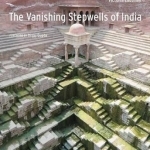
The Vanishing Stepwells of India
Victoria Lautmann and Divay Gupta
Book
Some of the most stunning architectural structures in India are to be found below ground: these are...
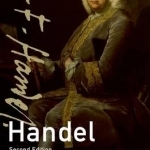
Handel
Book
Handel is one of the most remarkable figures in the history of western music. His compositions form...
Daniel Boyd (1066 KP) rated Never Mind The Bollocks, Here's The Sex Pistols by The Sex Pistols in Music
Nov 2, 2017
The ultimate reset switch on the musical chart machine
This album changed everything and brought rock ‘n roll music back down to ground level where it belongs. It perfectly captured the mindset of a generation and it was the turning point that was so badly needed at that point in musical history. These four lads were saying exactly what they meant and we could hear their pain and frustration through Lydon’s voice as he screamed down the microphone at us. This album is gripping from start to finish and full of strikingly relevant lyrics even today. Without Never Mind The Bollocks, you can forget Oasis or Nirvana or Green Day or any punk band to come after ’77 for that matter. This album had to happen as it totally changed the course of rock ‘n roll history for the better and gave us all what we wanted again. This band is as important to rock ‘n roll music and British culture as the Beatles or the Rolling Stones and they only ever released the one album, that is how important this record is. This album affected the style of an entire generation, it affected the politicians and it gave the how the majority of the country was feeling a united voice. The Tory government and the Royal Family may be scum, but it is hard to argue the fact that they have inspired some of the best music over the last 50 years. This album defines what it means to be young and pissed off and overlooked by the older generations who hold the power. It is an attack launched at anyone who has ever looked down their nose at anyone else. It is the quintessential lesson in how to compose a legendary rock n’ roll album and it reminded the world that you don’t need a bunch of overcomplicated instrumentals or 16 minute long interludes to make a great record, all you need is a few instruments, some raw talent and a determination to tell people how it really is. The Pistols wear their hearts on their sleeve in this record, both through their instruments and their lyrics, there is so much feeling and passion and genuine dissatisfaction on this record, yet it is also so careless and spur of the moment and that combination results in one of the greatest albums of the last half century in my opinion.
If American Idiot is a slap on the wrist of the government and a nudge to change things, Never Mind The Bollocks is the Pistols grabbing the man by the throat and squeezing until he is forced to listen to them. In the years prior to this record coming out, the charts were dominated by songs that were being played on a minimum of 15 different instruments per song. There hadn’t been a record composed solely of a guitar, a drumkit, a bass and a vocal in far too long and The Sex Pistols hit the reset button on rock ‘n roll music going forward. This record had to happen, without it bands like Oasis and Nirvana would never have came to be, or if they did they would sound vastly different to what they do today. This record has an undeniable feeling to it that no other record does, it is fury, frustration, desperation and sadness all at once and for me, there is nothing else in musical history that quite captures that feeling in the same way. This is simply four bored lads with pure raw talent telling us exactly how they feel and making sure not to leave out any of the gory details. Every riff on this album is a violent wake up call, every drum beat feels like a well deserved punch to the face and with Lydon’s voice and lyrics topping it all off, it is a beautifully ugly piece of pop culture that is relevant even today. The Pistols take on everybody in this album, from the Queen, to politics, to record labels and all of it is so well composed and yet so spur of the moment simultaneously. It’s like Lydon is spitting at you but in perfect time and in the most unique way that has ever been put to record. The band had a flair that lit Britain on fire, especially the middle classes, this record got banned out of fear that it would cause the man on the street to rise up and see through the bullshit that politicians and the government try to spin us day in and day out. Every song points out what is wrong with the country and its ethics and policies and it defines the reasons that the public are fed up of it. The whole thing flows so well and even though it takes just under 40 minutes to listen to the entire album from start to finish, it goes by in a flash and leaves such a strong impression that causes you to be left thinking about what you have just heard for hours afterwards. This is a fleeting moment in modern history captured in the most brief, yet poignant way and without it the very culture of Britain would be entirely different. This album is so important, not just for it’s anti establishment themes or its musical reasons, but because it actually altered the course of history beyond just the musical ecosystem. There was never an album before Never The Bollocks that sounded anything like it and there hasn’t been one since and sadly, there probably never will be. The last great rock n’ roll band that the world really took notice of were Oasis and since then there has been nothing significant enough to capture the world’s attention. If you ask me what we need right now is another band like the Sex Pistols to swagger up and take the spotlight away from the dance/pop garbage that is dominating today’s charts. We need a band that can reset the musical machine and show the youth of today that all you need to make it is raw talent, a few instruments and a sprinkle of determination and the world can be yours. I am hopeful it will eventually happen, it has to and in my mind it is inevitable and is more a question of when rather than a question of if. That album is what will resurrect rock n’ roll music and bring it back to the forefront and the group that manages it will be the band that defines their respective generation. Since Oasis split the crown has been up for the taking and all we need is a band with enough balls and talent and who actually have something to say, to reach out and grab it.
If American Idiot is a slap on the wrist of the government and a nudge to change things, Never Mind The Bollocks is the Pistols grabbing the man by the throat and squeezing until he is forced to listen to them. In the years prior to this record coming out, the charts were dominated by songs that were being played on a minimum of 15 different instruments per song. There hadn’t been a record composed solely of a guitar, a drumkit, a bass and a vocal in far too long and The Sex Pistols hit the reset button on rock ‘n roll music going forward. This record had to happen, without it bands like Oasis and Nirvana would never have came to be, or if they did they would sound vastly different to what they do today. This record has an undeniable feeling to it that no other record does, it is fury, frustration, desperation and sadness all at once and for me, there is nothing else in musical history that quite captures that feeling in the same way. This is simply four bored lads with pure raw talent telling us exactly how they feel and making sure not to leave out any of the gory details. Every riff on this album is a violent wake up call, every drum beat feels like a well deserved punch to the face and with Lydon’s voice and lyrics topping it all off, it is a beautifully ugly piece of pop culture that is relevant even today. The Pistols take on everybody in this album, from the Queen, to politics, to record labels and all of it is so well composed and yet so spur of the moment simultaneously. It’s like Lydon is spitting at you but in perfect time and in the most unique way that has ever been put to record. The band had a flair that lit Britain on fire, especially the middle classes, this record got banned out of fear that it would cause the man on the street to rise up and see through the bullshit that politicians and the government try to spin us day in and day out. Every song points out what is wrong with the country and its ethics and policies and it defines the reasons that the public are fed up of it. The whole thing flows so well and even though it takes just under 40 minutes to listen to the entire album from start to finish, it goes by in a flash and leaves such a strong impression that causes you to be left thinking about what you have just heard for hours afterwards. This is a fleeting moment in modern history captured in the most brief, yet poignant way and without it the very culture of Britain would be entirely different. This album is so important, not just for it’s anti establishment themes or its musical reasons, but because it actually altered the course of history beyond just the musical ecosystem. There was never an album before Never The Bollocks that sounded anything like it and there hasn’t been one since and sadly, there probably never will be. The last great rock n’ roll band that the world really took notice of were Oasis and since then there has been nothing significant enough to capture the world’s attention. If you ask me what we need right now is another band like the Sex Pistols to swagger up and take the spotlight away from the dance/pop garbage that is dominating today’s charts. We need a band that can reset the musical machine and show the youth of today that all you need to make it is raw talent, a few instruments and a sprinkle of determination and the world can be yours. I am hopeful it will eventually happen, it has to and in my mind it is inevitable and is more a question of when rather than a question of if. That album is what will resurrect rock n’ roll music and bring it back to the forefront and the group that manages it will be the band that defines their respective generation. Since Oasis split the crown has been up for the taking and all we need is a band with enough balls and talent and who actually have something to say, to reach out and grab it.
Goddess in the Stacks (553 KP) rated Alanna: The First Adventure in Books
Apr 16, 2018
The Song of the Lioness quartet is Tamora Pierce's first set of books. I read her latest trilogy (the Beka Cooper trilogy) first, which didn't exactly prepare me for The Song of the Lioness. It's obvious, going from the latest trilogy to her first writing, how much her writing has matured since the 80s. My first thought upon completing Alanna: the First Adventure was "I'm very glad she's gotten better at writing!" The story itself is still interesting and worth reading, but the style is a little difficult to read when I KNOW how well she writes now. The characters are mostly one-dimensional; few of the side characters seem to have plots going or events happening to them when they're not with Alanna. Characters pop up, have a significant interaction with Alanna, and are gone again, with no indication they exist outside of their usefulness to the main character. This is in stark contrast to her latest work, where every character that has a significant role to play has a history of their own, and thoughts and feelings of their own. They're much more fleshed out in her recent books.
That complaint aside, the Alanna books are really the foundation that the rest of Tortall was built upon. It's interesting to see how Pierce has fleshed out some of the concepts she touched on in the Alanna saga, and it's fun to see where some of the things from the Beka Cooper trilogy originated. It also pays to keep in mind that though the Alanna books were written first, the Beka Cooper trilogy is based two hundred years earlier. We learn a lot more about the office of The Rogue in the Beka Cooper trilogy, something that isn't explained very well in the Alanna quartet, even though one of Alanna's main romantic interests is George Cooper (yes, a descendant of Beka!), the Rogue. Pierce also never explains the origins of Alanna's cat, Faithful, in the actual Alanna books. That explanation lies in the Beka Cooper books as well.
The Song of the Lioness quartet is the story of a girl who decides to rebel against tradition and follow her heart to become a knight. In her time, ladies simply do NOT become knights. They learn to organize households and marry well. Alanna, however, is lucky enough to have a twin brother who does not want to become a knight; instead Thom wants to be a mage. So when they're sent off to face their futures, they switch places, with Alanna becoming "Alan", the younger twin. (Thom stays Thom; the school that ladies are sent to is the same school mages start at.)
Alan/Alanna begins as a page, then moves to squire, and eventually a knight. Her secret is discovered, but due to her influential friends, most of whom knew she was a girl by then, she is able to keep her status. Her adventures take her from uncovering a plot against the royal family, to being adopted by a desert tribe, to recovering a magic jewel of prosperity, with many small adventures in between.
I love reading Pierce's heroines; both Alanna and Beka have problems reconciling their feminine natures with the work they've chosen. The scenes where Alanna's love interests see her in a dress for the first time, instead of her normal boy-garb and armor, is heart-warming in one case, and sad in another. In both womens' lives it's the man who can accept all of their aspects who ultimately wins their heart, which is a wonderful message.
Ultimately, the technical flaws in the writing of the Alanna saga faded as I became absorbed in the story. I'll be requesting more Tortall books from the library in the near future!
You can find all my reviews at http://goddessinthestacks.wordpress.com
That complaint aside, the Alanna books are really the foundation that the rest of Tortall was built upon. It's interesting to see how Pierce has fleshed out some of the concepts she touched on in the Alanna saga, and it's fun to see where some of the things from the Beka Cooper trilogy originated. It also pays to keep in mind that though the Alanna books were written first, the Beka Cooper trilogy is based two hundred years earlier. We learn a lot more about the office of The Rogue in the Beka Cooper trilogy, something that isn't explained very well in the Alanna quartet, even though one of Alanna's main romantic interests is George Cooper (yes, a descendant of Beka!), the Rogue. Pierce also never explains the origins of Alanna's cat, Faithful, in the actual Alanna books. That explanation lies in the Beka Cooper books as well.
The Song of the Lioness quartet is the story of a girl who decides to rebel against tradition and follow her heart to become a knight. In her time, ladies simply do NOT become knights. They learn to organize households and marry well. Alanna, however, is lucky enough to have a twin brother who does not want to become a knight; instead Thom wants to be a mage. So when they're sent off to face their futures, they switch places, with Alanna becoming "Alan", the younger twin. (Thom stays Thom; the school that ladies are sent to is the same school mages start at.)
Alan/Alanna begins as a page, then moves to squire, and eventually a knight. Her secret is discovered, but due to her influential friends, most of whom knew she was a girl by then, she is able to keep her status. Her adventures take her from uncovering a plot against the royal family, to being adopted by a desert tribe, to recovering a magic jewel of prosperity, with many small adventures in between.
I love reading Pierce's heroines; both Alanna and Beka have problems reconciling their feminine natures with the work they've chosen. The scenes where Alanna's love interests see her in a dress for the first time, instead of her normal boy-garb and armor, is heart-warming in one case, and sad in another. In both womens' lives it's the man who can accept all of their aspects who ultimately wins their heart, which is a wonderful message.
Ultimately, the technical flaws in the writing of the Alanna saga faded as I became absorbed in the story. I'll be requesting more Tortall books from the library in the near future!
You can find all my reviews at http://goddessinthestacks.wordpress.com

Metroburbia: The Anatomy of Greater London
Book
London's suburbs are home to many thousands of people who travel into the centre every day to work,...
Movie Metropolis (309 KP) rated X-Men: Dark Phoenix (2019) in Movies
Jun 10, 2019 (Updated Jun 10, 2019)
Goodbye Normal Jean
It would be easy to write off X-Men: Dark Phoenix as a complete and utter disaster. With the departure of Bryan Singer (again) from the franchise, first-time director Simon Kinberg taking his place and rumours of costly reshoots pushing the budget north of $200million, things weren’t looking good for this adaptation of the popular Marvel comic.
Let’s not forget that the last time Fox tried to adapt this storyline we ended up with 2006’s The Last Stand, and the less said about that the better. Looking back over the last 20 years, the X-Men’s film franchise history has been chequered to say the least.
Nevertheless, this particular timeline that started with Matthew Vaughn’s adequate First Class, followed up by the excellent Days of Future Past and the flabby Apocalypse ends with Dark Phoenix. But is it worthy of your consideration?
This is the story of one of the X-Men’s most beloved characters, Jean Grey (Sophie Turner), as she evolves into the iconic Phoenix. During a rescue mission in space, Jean is hit by a cosmic force that transforms her into one of the most powerful mutants of all. Wrestling with this increasingly unstable power as well as her own personal demons, Jean spirals out of control, tearing the X-Men family apart and threatening to destroy the very fabric of our planet.
First things first – this is not a bad film. Yes, you heard me right. Leagues above Apocalypse and much better than The Last Stand, Dark Phoenix is a film that has been let down by catastrophically poor marketing. It’s not perfect, as we’ll discover in this review, but it tries a different approach, and for that it should be applauded.
For this reviewer, the modern day cast of characters has always been a weak spot for the series and that doesn’t really change in Dark Phoenix. James McAvoy remains miscast as Charles Xavier, especially since packing on the muscle for this Glass, but he performs much better here than he did in its predecessor. His transition into egotistical maniac, obsessed by the celebrity status the X-Men have acquired at the outset of the film is an intriguing diversion from where he was at the end of Apocalypse.
The younger cast are more likeable. Kodi Smitt-McPhee’s portrayal of Nightcrawler is fabulous and he gets more to do this time around. Tye Sheridan is great as young Cyclops and Evan Peters’ Quicksilver remains a highlight, though it’s unfortunate he’s cast aside relatively quickly – for fans of his set pieces from the previous two films, you’ll be disappointed here. Michael Fassbender and Nicholas Hoult bring their a-games, but they even seem a little bored by what’s going on. “You’re always sorry, Charles. And there’s always a speech. But nobody cares anymore!” bites Michael Fassbender at one point in the film – perhaps he’s onto something?
The first hour is perhaps the best the series has been since Days of Future Past
Of the female cast, Sophie Turner does her best with the material she’s given, and her Jean Grey is full of anger, angst and melancholy. The script struggles to provide her with any other emotion, but she’s a pleasing protagonist for the most part. Unfortunately, Jennifer Lawrence completely phones in her performance as Mystique and Jessica Chastain’s horrifically underwritten villain wastes a fabulous actor in a thankless role – much like Oscar Issac in Apocalypse.
With reports of heavy reshoots, you’d be forgiven for thinking that the film would end up a royal mess. Thankfully, the first hour is perhaps the best the series has been since Days of Future Past. Focusing on character development rather than all-out action, it’s a pleasing change and one which is more than welcome. Unfortunately, as time ticks away, the film loses all semblance of sanity and becomes muddled as it steamrolls towards an underwhelming climax.
And despite the reported budget of $200million, some of the shot choices and outfits feel cheap. It’s clear director Simon Kinberg is a fan of the series, but the X-Men costumes are bland, ill-fitting and a world away from what we’ve seen before. Closer to the comics they may be, but that’s not always a good thing. Elsewhere, the film feels cut-rate, almost TV-movie like and that’s a real shame because the special effects are top-notch. Mercifully, Hans Zimmer’s score is wonderful. The soaring orchestral soundtrack works brilliantly with the film – it’s probably the best music in the series to date.
Overall, X-Men: Dark Phoenix has been a victim of poor marketing with trailers that spoilt perhaps the most pivotal moment of the film (which we won’t spoil here). Nevertheless, the first hour is great and the special effects provide the film with some thrilling set pieces. It’s a shame then that the film offers up nothing new to the table despite some committed performances – this Phoenix just doesn’t quite rise to the occasion.
https://moviemetropolis.net/2019/06/07/x-men-dark-phoenix-review-goodbye-normal-jean/
Let’s not forget that the last time Fox tried to adapt this storyline we ended up with 2006’s The Last Stand, and the less said about that the better. Looking back over the last 20 years, the X-Men’s film franchise history has been chequered to say the least.
Nevertheless, this particular timeline that started with Matthew Vaughn’s adequate First Class, followed up by the excellent Days of Future Past and the flabby Apocalypse ends with Dark Phoenix. But is it worthy of your consideration?
This is the story of one of the X-Men’s most beloved characters, Jean Grey (Sophie Turner), as she evolves into the iconic Phoenix. During a rescue mission in space, Jean is hit by a cosmic force that transforms her into one of the most powerful mutants of all. Wrestling with this increasingly unstable power as well as her own personal demons, Jean spirals out of control, tearing the X-Men family apart and threatening to destroy the very fabric of our planet.
First things first – this is not a bad film. Yes, you heard me right. Leagues above Apocalypse and much better than The Last Stand, Dark Phoenix is a film that has been let down by catastrophically poor marketing. It’s not perfect, as we’ll discover in this review, but it tries a different approach, and for that it should be applauded.
For this reviewer, the modern day cast of characters has always been a weak spot for the series and that doesn’t really change in Dark Phoenix. James McAvoy remains miscast as Charles Xavier, especially since packing on the muscle for this Glass, but he performs much better here than he did in its predecessor. His transition into egotistical maniac, obsessed by the celebrity status the X-Men have acquired at the outset of the film is an intriguing diversion from where he was at the end of Apocalypse.
The younger cast are more likeable. Kodi Smitt-McPhee’s portrayal of Nightcrawler is fabulous and he gets more to do this time around. Tye Sheridan is great as young Cyclops and Evan Peters’ Quicksilver remains a highlight, though it’s unfortunate he’s cast aside relatively quickly – for fans of his set pieces from the previous two films, you’ll be disappointed here. Michael Fassbender and Nicholas Hoult bring their a-games, but they even seem a little bored by what’s going on. “You’re always sorry, Charles. And there’s always a speech. But nobody cares anymore!” bites Michael Fassbender at one point in the film – perhaps he’s onto something?
The first hour is perhaps the best the series has been since Days of Future Past
Of the female cast, Sophie Turner does her best with the material she’s given, and her Jean Grey is full of anger, angst and melancholy. The script struggles to provide her with any other emotion, but she’s a pleasing protagonist for the most part. Unfortunately, Jennifer Lawrence completely phones in her performance as Mystique and Jessica Chastain’s horrifically underwritten villain wastes a fabulous actor in a thankless role – much like Oscar Issac in Apocalypse.
With reports of heavy reshoots, you’d be forgiven for thinking that the film would end up a royal mess. Thankfully, the first hour is perhaps the best the series has been since Days of Future Past. Focusing on character development rather than all-out action, it’s a pleasing change and one which is more than welcome. Unfortunately, as time ticks away, the film loses all semblance of sanity and becomes muddled as it steamrolls towards an underwhelming climax.
And despite the reported budget of $200million, some of the shot choices and outfits feel cheap. It’s clear director Simon Kinberg is a fan of the series, but the X-Men costumes are bland, ill-fitting and a world away from what we’ve seen before. Closer to the comics they may be, but that’s not always a good thing. Elsewhere, the film feels cut-rate, almost TV-movie like and that’s a real shame because the special effects are top-notch. Mercifully, Hans Zimmer’s score is wonderful. The soaring orchestral soundtrack works brilliantly with the film – it’s probably the best music in the series to date.
Overall, X-Men: Dark Phoenix has been a victim of poor marketing with trailers that spoilt perhaps the most pivotal moment of the film (which we won’t spoil here). Nevertheless, the first hour is great and the special effects provide the film with some thrilling set pieces. It’s a shame then that the film offers up nothing new to the table despite some committed performances – this Phoenix just doesn’t quite rise to the occasion.
https://moviemetropolis.net/2019/06/07/x-men-dark-phoenix-review-goodbye-normal-jean/

